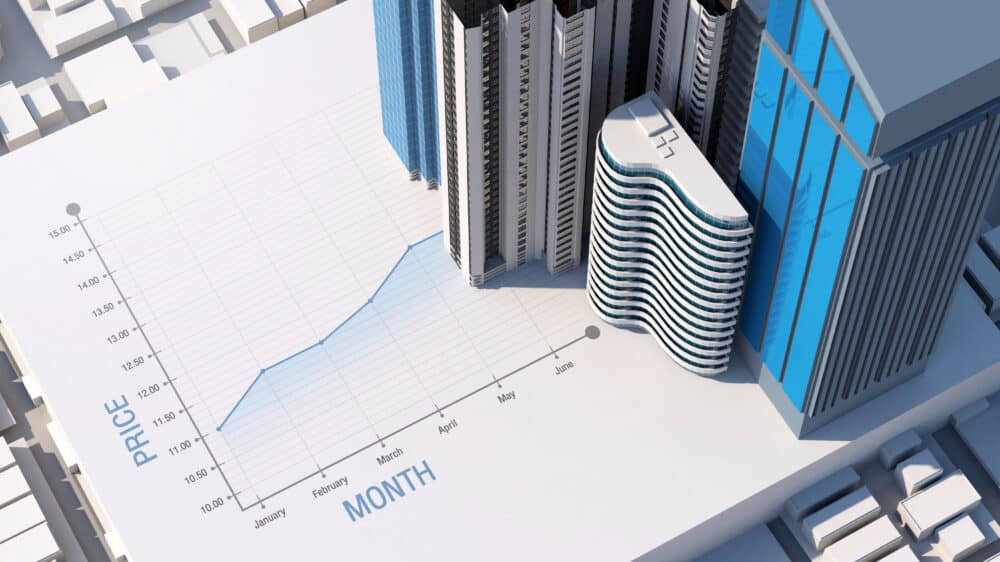- Optimism around growth to strengthen, but cost cautiousness will remain
- AI to take on a more significant strategic role and disrupt traditional business models
- Consolidation in the PropTech supplier market continues to improve product quality
Growth optimism returns, but cost cautiousness remains
With a new government committed to getting Britain building and the macro-economic situation far more favourable than a year ago, 2025 will see renewed optimism and a pick-up in deal flow. However, this is far from a return to a bull market as investors’ experience of a challenging few years since the pandemic will not be easily washed away. While the economic picture is improved, confidence is still brittle. Inflation has settled but has crept up again towards the end of 2024, and opinions remain split on how the direction set out by the Government in its first budget will impact decision-making. One effect of these concerns will be that investors will be more ambitious next year, but laser-focussed on margin and, as such, looking at ways to minimise costs from design, to construction and legal and professional services.
Andrew Lloyd, Managing Director at Search Acumen, said: “Our conversations with real estate professionals and property lawyers suggest confidence is growing and I think we’ll likely see improved deal flow through 2025, even just from having a more stable government, with a clear commitment to getting Britain building. That being said, while confidence is improving it is still very fragile and I don’t think we’ll see huge breakthroughs in 2025.
“At last, we’re on a pathway towards growth in commercial real estate. But, the hangover from the last few years of challenging economic conditions will be long-lasting with the market moving forward incrementally, and likely with setbacks to come along the way. In that context, budgets will remain tight, scrutiny around supplier costs will be intense, and deals will only progress after very robust viability assessments. This will be even more true for sectors that are already characterised by challenging margins, like social housing, where we’ll surely see more activity given the Government’s proactive housing agenda, but profitability is harder to come by because of the dynamics around asset pricing and the complexity of these deals to put together.”
AI to take on more significant strategic role and disrupt traditional business models
Adoption of AI in real estate will tip over from tactical usage to a strategic priority in 2025. Confidence in its accuracy and improvements in the development of user-friendly, integrated platforms will push progress.
This will naturally boost interest in suppliers as legal and professional services companies drive administrative efficiencies to win business as market outlook improves.
As confidence grows throughout the sector, we will see AI strategically integrated throughout business operations, rather than being deployed in isolated use cases. We will also see AI trusted to deliver a broader range of more complicated tasks in administration, branching into more complex analytics.
The result of this will be the first landmark changes to traditional business models, notably in the evolution of skills and capabilities, and in pricing models utilised by real estate advisory businesses.
With regards to AI’s impact on real estate sector skills, Andrew Lloyd commented:
“We have seen AI utilised throughout the commercial real estate industry over recent years to tackle a huge range of pain points. In 2025 we’ll ride a confidence wave that will empower business leaders to take a more strategic approach to integrating AI into all operations. This more comprehensive roll out of AI will for the first time start to challenge industry fundamentals that have existed in some case for centuries.
“A big focus will be on how we re-focus our understanding of what the core real estate industry skillset looks like for the next hundred years. Next year will be the start of a major skills re-alignment away from administration towards analysis, with many support function and junior roles re-imagined. These will focus around a broader skillset incorporating prompt engineering, technological tool proficiency and analytic skills, rather than administrative speed, diligence and efficiency. Far from a dystopian vision for the future, this is largely being driven from the bottom-up, with a new generation of real estate professionals that see AI as a way to improve the experience of working in modern real estate.”
With regards to fee structures in the supplier market Andrew Lloyd commented:
“As investors and developers remain incredibly cost cautious, technology is vital for commercial real estate advisors. However, while that offers an opportunity for progressive businesses to capture more market share, advisors are going to have to engage next year with the fundamental question around how you price-in AI efficiency and pass that cost-efficiency on to clients without reducing margin. This is going to be a huge question for the professional and legal services market segment over the coming years. I expect to see a focus on pricing innovation in the supplier market next year, initially at the margins as companies A/B test new models for service delivery, but breaking into a more significant industry conversation over time.”
Proptech market consolidation to drive up quality of technology services to the commercial real estate sector
Across the technology space, from proptech to regtech, fintech and legaltech, these markets are maturing through consolidation and mergers and acquisitions (M&A). This will continue in 2025. As clients’ understanding of technology improves and they move from experimental or isolated use cases to a more strategic approach, the onus is shifting within real estate firms from R&D to clear return on investment. That means a flight towards easy to integrate and user-friendly tools and technology one-stop-shops that tackle a multitude of client pain points within a single platform. That evolution in client mindset will solidify the requirement for more significant, professionalised, end to end technology platforms. This will in turn drive M&A as the PropTech sector consolidates to achieve the scale required to deliver these services.
Andrew Lloyd said:
“Most technology verticals have been consolidating as these markets mature, both on the client and supplier side. This will again be a feature of 2025 as client expectations evolve and the preferences for hyper-personalised, user-friendly, end-to-end tech platforms becomes even more established.”
– Ends –












